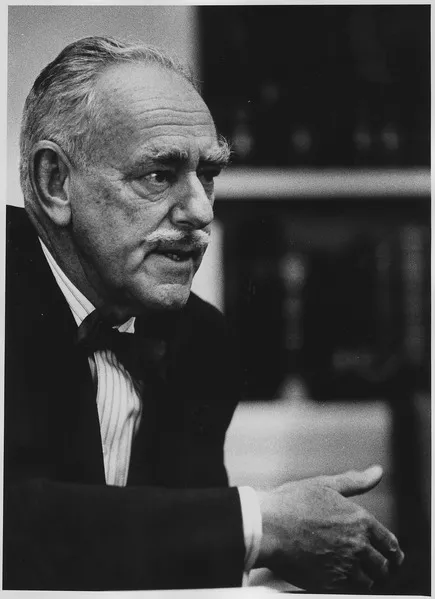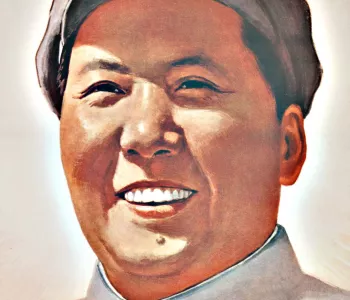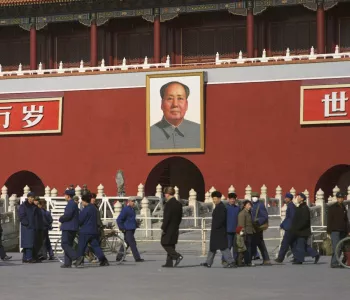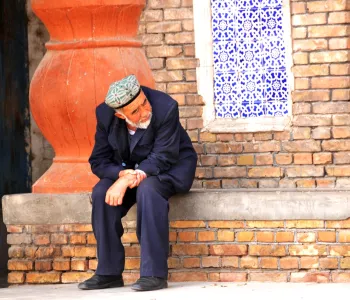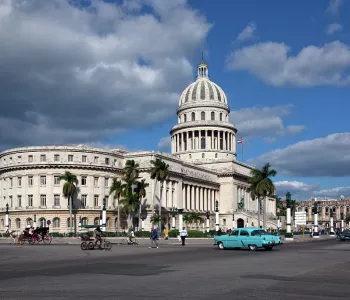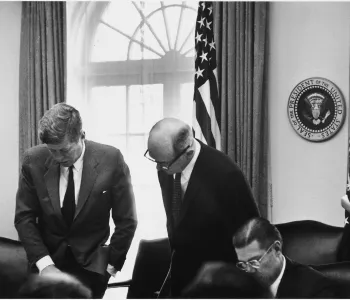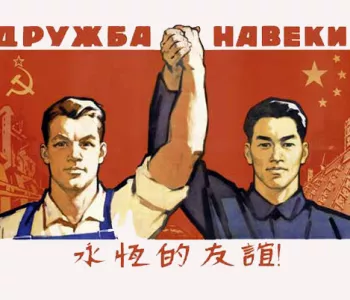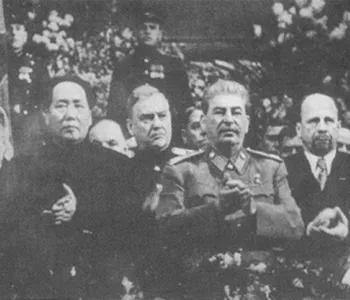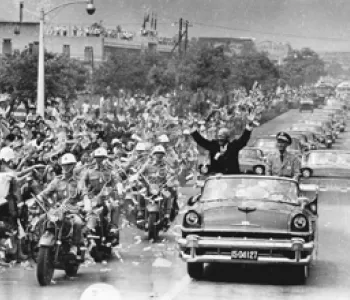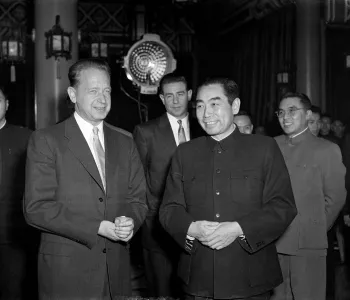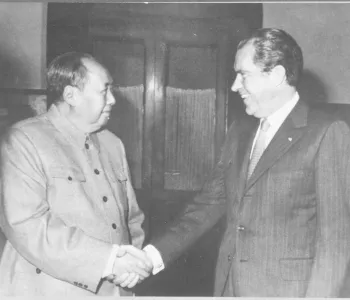Dean Acheson was born in Middletown, Connecticut, on April 11, 1893. After being educated at Yale University (1912-15) and Harvard Law School (1915-18) he became private secretary to the Supreme Court Justice, Louis Brandeis (1919-21).
A supporter of the Democratic Party, Acheson worked for a law firm in Washington before Franklin D. Roosevelt appointed him as Under Secretary of the Treasury in 1933. During the Second World War Acheson served as Assistant Secretary in the Department of State.
In 1945 Harry S. Truman selected Acheson as his Under Secretary of State. Over the next two years Acheson played an important role in devising both the Truman Doctrine and the European Recovery Program (ERP). Acheson believed that the best way to halt the spread of communism was by working with progressive forces in those countries threatened by revolution. After becoming Secretary of State in 1949, Acheson and George Marshall, Secretary of Defense, came under increasing attack from right-wing politicians who considered the two men to be soft on communism.
On February 9, 1950, Joe McCarthy made a speech at Wheeling where he attacked Acheson as "a pompous diplomat in striped pants". He claimed that he had a list of 250 people in the State Department known to be members of the American Communist Party. McCarthy went on to argue that some of these people were passing secret information to the Soviet Union. He added: "The reason why we find ourselves in a position of impotency is not because the enemy has sent men to invade our shores, but rather because of the traitorous actions of those who have had all the benefits that the wealthiest nation on earth has had to offer - the finest homes, the finest college educations, and the finest jobs in Government we can give."
McCarthy had obtained his information from his friend, J. Edgar Hoover, the head of the Federal Bureau of Investigation (FBI). William Sullivan, one of Hoover's agents, later admitted that: "We were the ones who made the McCarthy hearings possible. We fed McCarthy all the material he was using."
Acheson also upset the right-wing when he took the side of Harry S. Truman in his dispute with General Douglas MacArthur over the Korean War. Acheson and Truman wanted to limit the war to Korea whereas MacArthur called for the extension of the war to China. Joe McCarthy once again led the attack on Acheson: "With half a million Communists in Korea killing American men, Acheson says, 'Now let's be calm, let's do nothing'. It is like advising a man whose family is being killed not to take hasty action for fear he might alienate the affection of the murderers."
In April 1951, Harry S. Truman removed General Douglas MacArthur from his command of the United Nations forces in Korea. McCarthy called for Truman to be impeached and suggested that the president was drunk when he made the decision to fire MacArthur: "Truman is surrounded by the Jessups, the Achesons, the old Hiss crowd. Most of the tragic things are done at 1.30 and 2 o'clock in the morning when they've had time to get the President cheerful."
Acheson was the main target of McCarthy's anger as he believed Harry S. Truman was "essentially just as loyal as the average American". However, Truman was president "in name only because the Acheson group has almost hypnotic powers over him. We must impeach Acheson, the heart of the octopus."
Harry S. Truman decided not to stand for president in 1952 and Acheson's close friend, Adlai Stevenson, was chosen as the Democratic Party candidate for the election. It was one of the dirtiest in history with Richard Nixon, the Republican vice-presidential candidate, leading the attack on Stevenson. Speaking in Indiana, Nixon described Stevenson as a man with a "Ph.D. from Dean Acheson's cowardly college of Communist containment."
The election campaign of Dwight Eisenhower and Richard Nixon was a great success and in November they easily defeated Adlai Stevenson by 33,936,252 votes to 27,314,922. Disillusioned by the smear campaign, Acheson returned to his private law practice. He also wrote several books on politics including Power and Diplomacy (1958), Morning and Noon (1965), Present at the Creation (1970) and The Korean War (1971). Dean Acheson died at Sandy Spring, Maryland, on 12th October, 1971.
